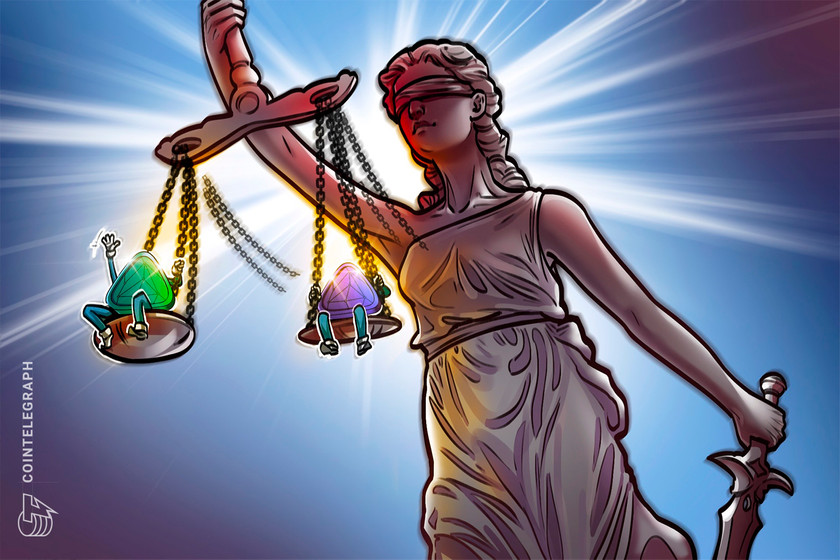The rapidly growing but loosely regulated nonfungible token (NFT) industry already touches many areas of human endeavor “from academia to entertainment to medicine, art, and beyond,” wrote recently two United States senators in a letter to the U.S. Patent and Trademark Office (USPTO) and the U.S. Copyright Office. The legislators were requesting a study to explain how this emerging technology fits into the world of intellectual property (IP) rights, including copyrights, trademarks and patents.
It is an area that some say is marked by ambiguity and inconsistent application of the law, and sometimes indifference from the courts. “Many feel it is time for Congress to step in and provide the predictability needed for innovation to flourish,” Michael Young, partner at Finnegan, Henderson, Farabow, Garrett & Dunner, LLP, told Cointelegraph.
The joint study that senators Patrick Leahy and Thom Tillis requested from the agencies, due June 2023, has as background a recent slew of high-profile lawsuits — Nike v. StockX, Hermès v. MetaBirkins and Miramax v. Quentin Tarantino — that raise some sticky questions about NFT creation, ownership and dissemination.
In one case, an NFT was minted — without permission — featuring sneakers with a Nike Swoosh. In another, NFT-related digital images were created of Hermès’ Birkin handbags, covered in fur, not leather, but also unlicensed. In a third, a famed movie director created NFTs from a film he directed but didn’t own.
A “wave of litigations has already begun for trademarks and copyrights, and courts are grappling with applying principles crafted long before the NFTs existed,” Anna Naydonov, partner and co-chair with Young of Finnegan’s Blockchain, NFTs, and Other Digital Assets industry group, told Cointelegraph.
“The lack of clarity surrounding patent subject matter eligibility for software remains a top concern for NFTs and other crypto-based innovations in both the U.S. and abroad,” said Young. Much the same could be said about trademark and copyright issues, especially the secondary liability of marketplaces like OpenSea, as well as metaverse virtual worlds and similar platforms where copyright infringement can occur, added Naydonov.
Still, not all agree that new legislation is needed. Some believe that government intervention in the U.S. and elsewhere would be not only superfluous but could stifle NFT adoption and innovation.
Is current law sufficient?
The real problem, as Gina Bibby,…
Click Here to Read the Full Original Article at Cointelegraph.com News…
























